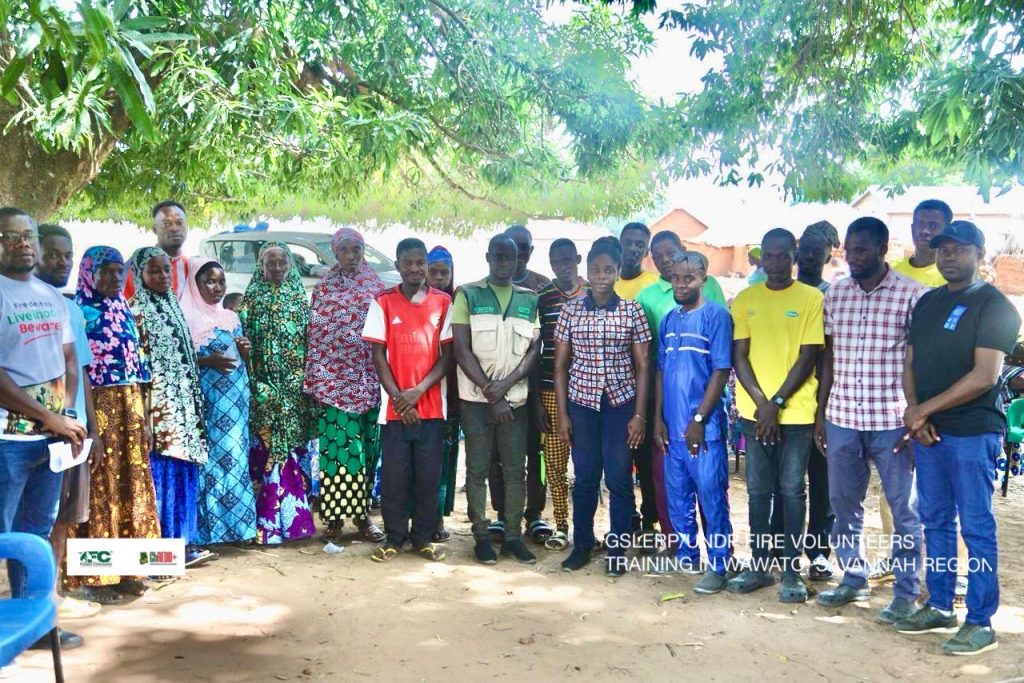
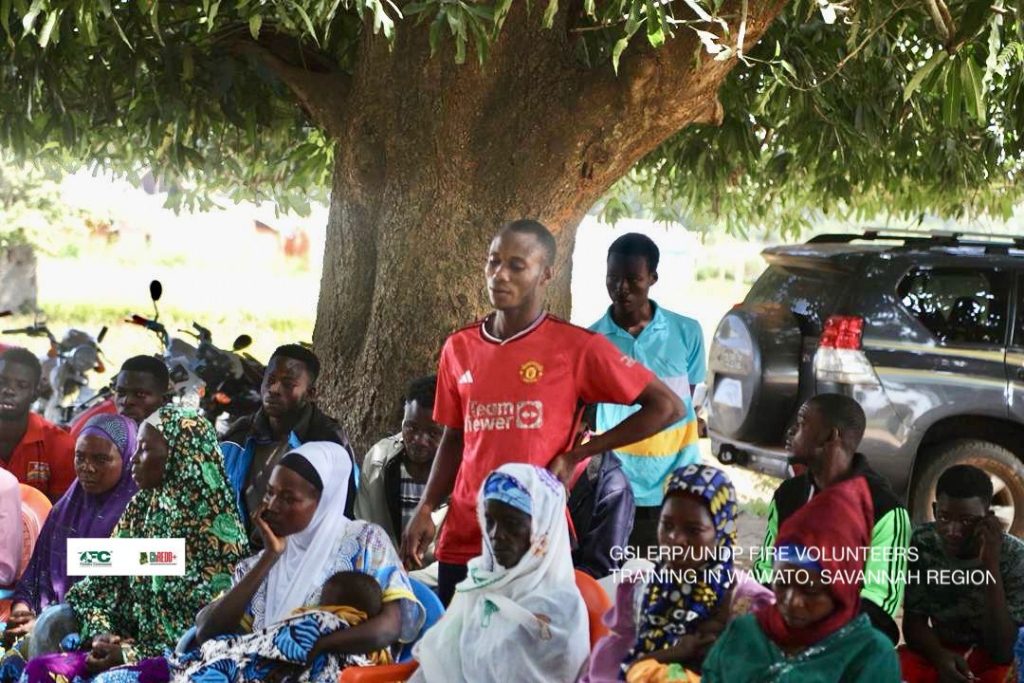
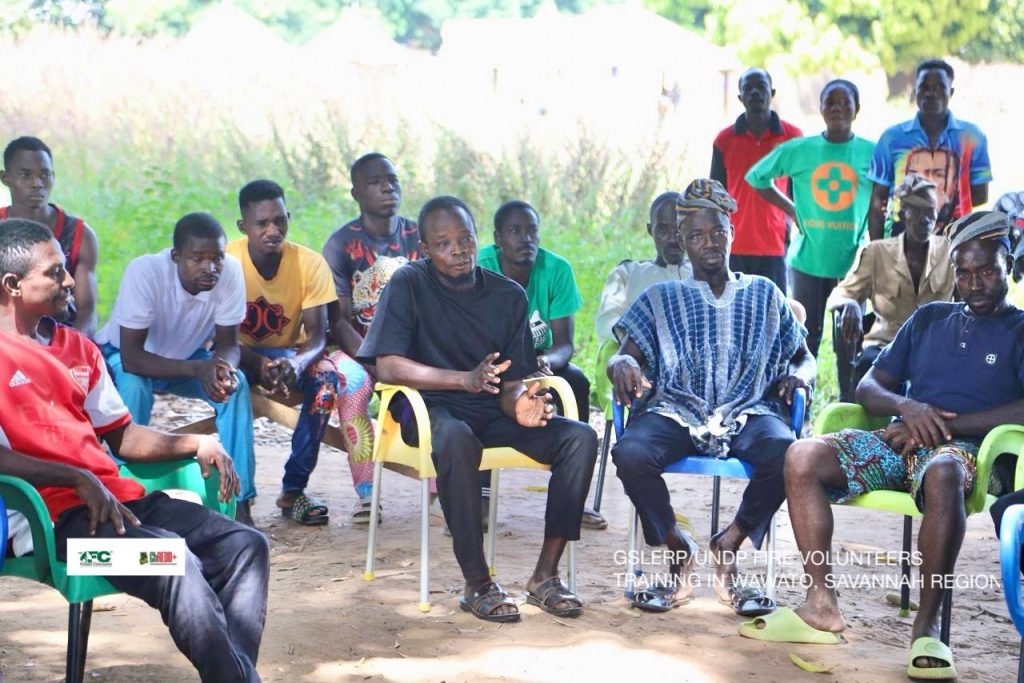
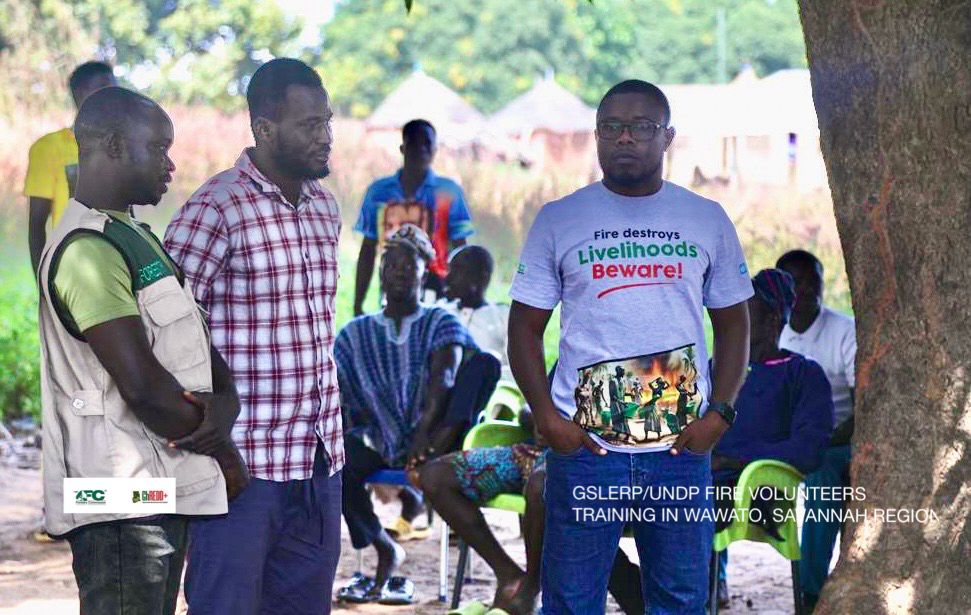
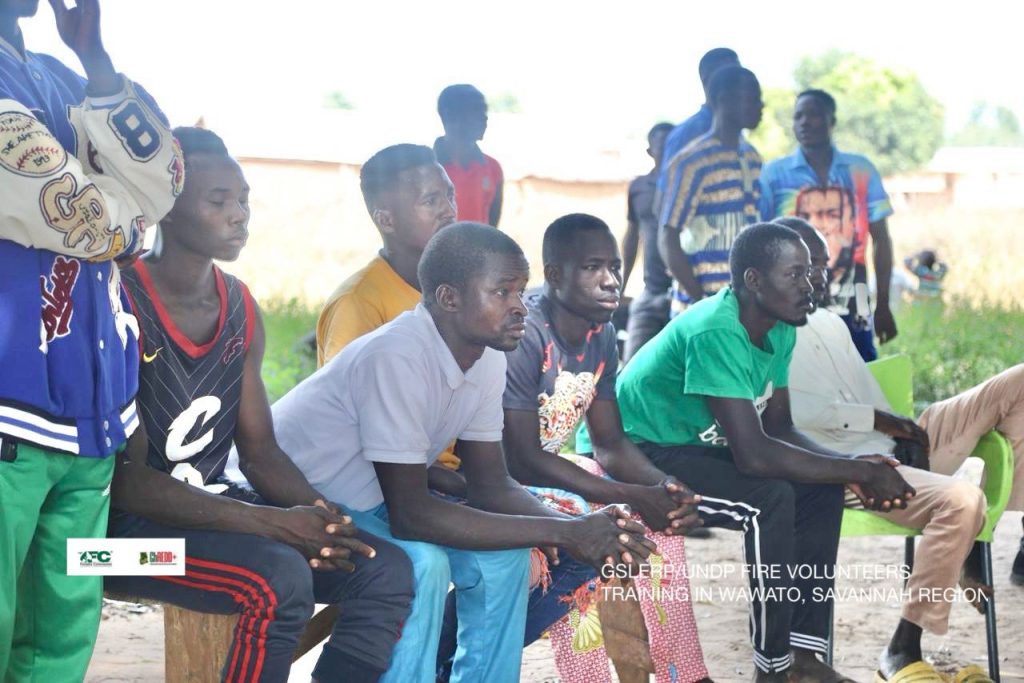
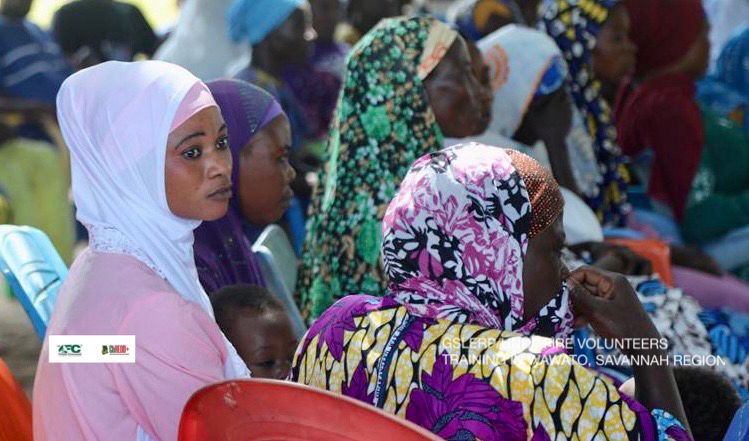
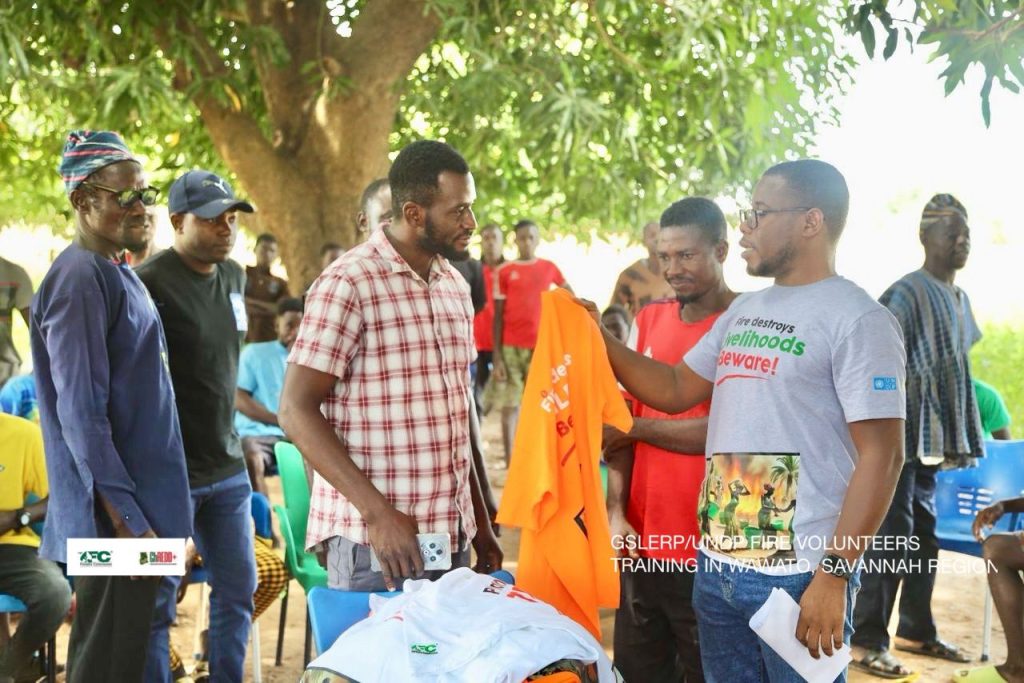
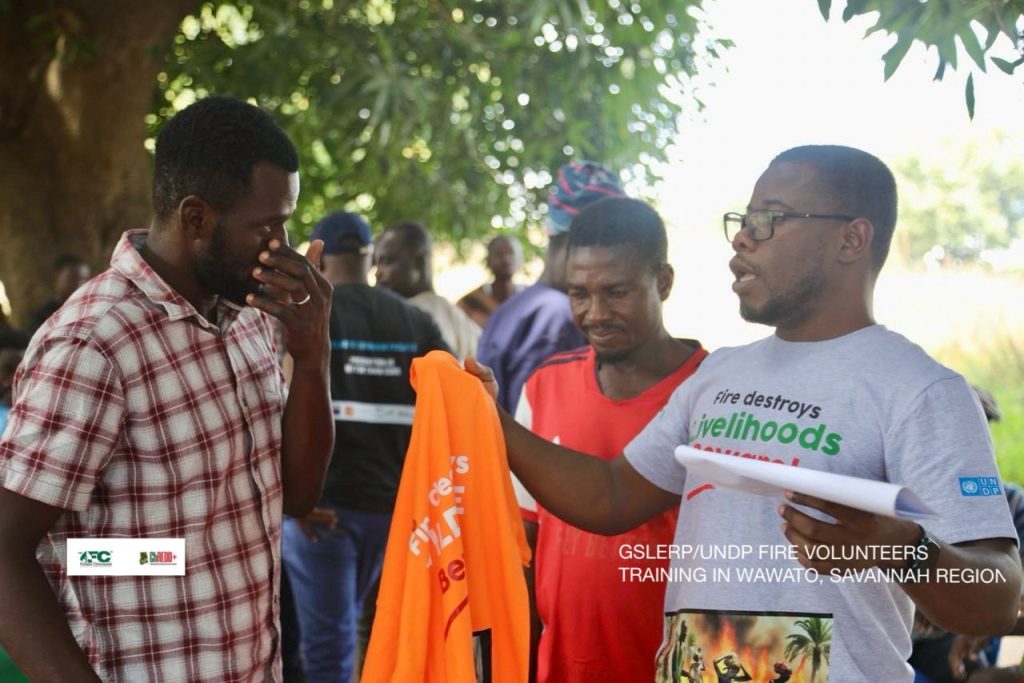
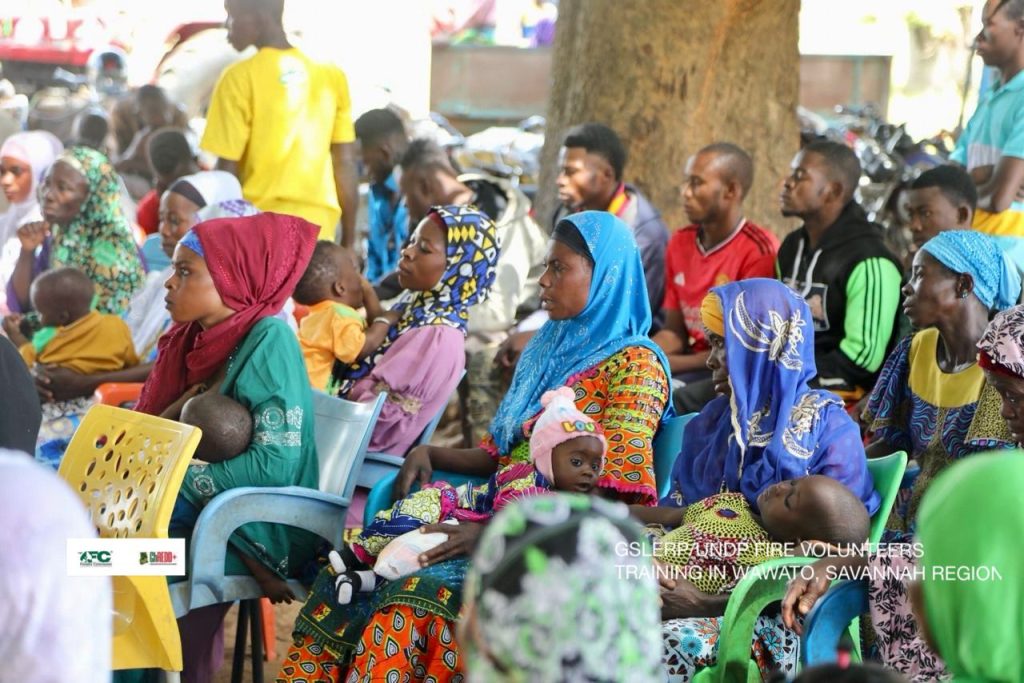
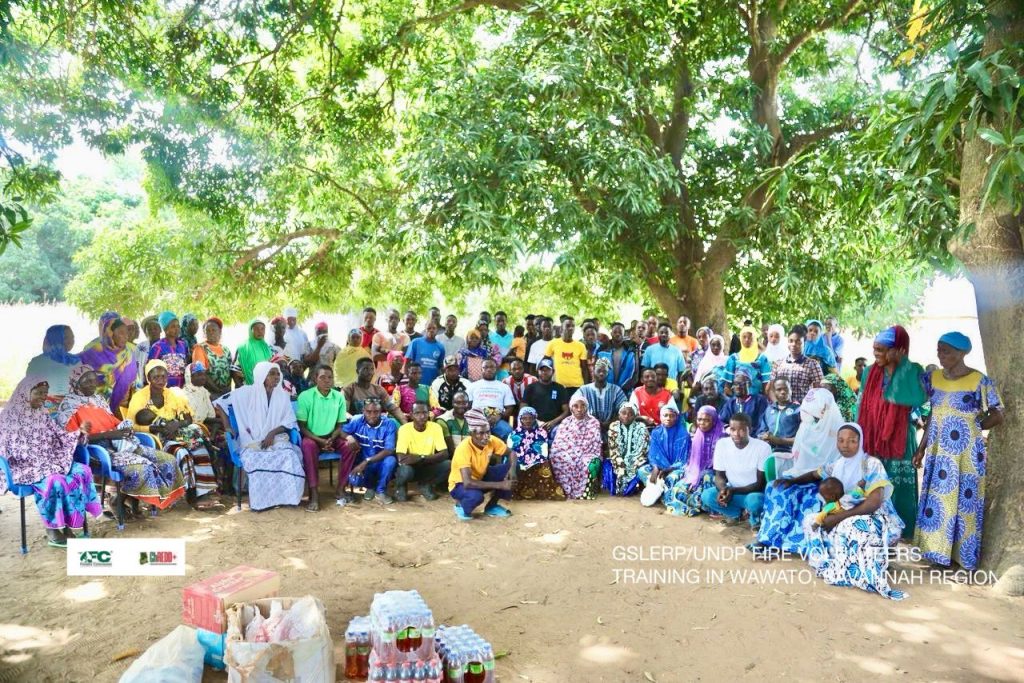
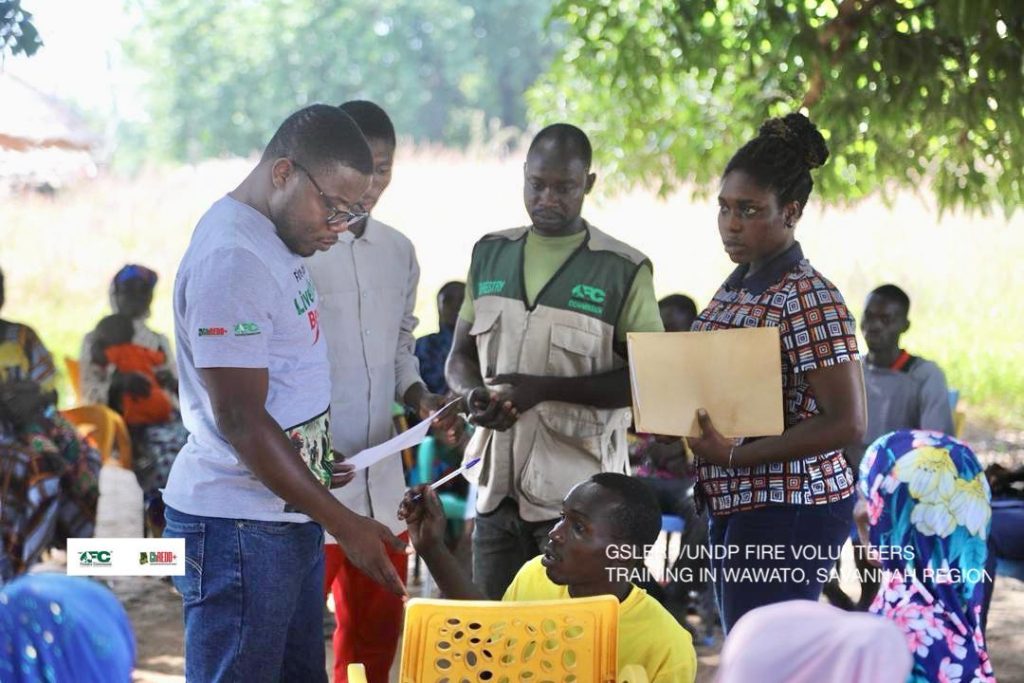
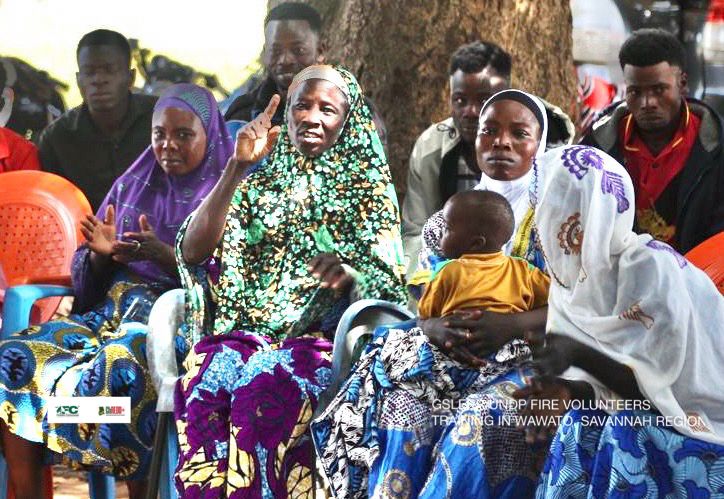
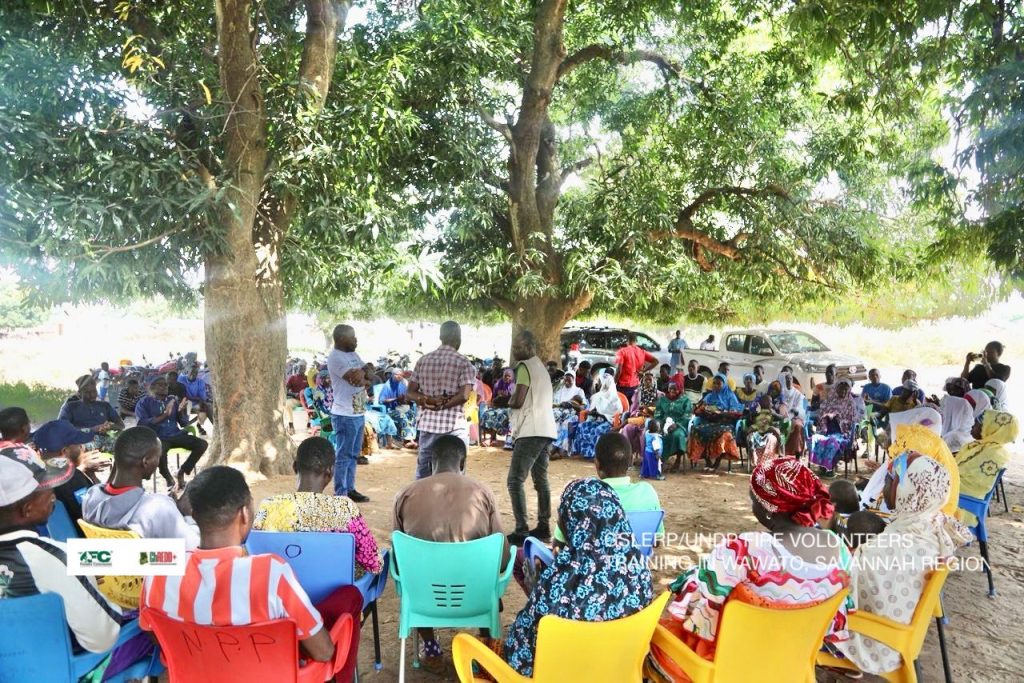
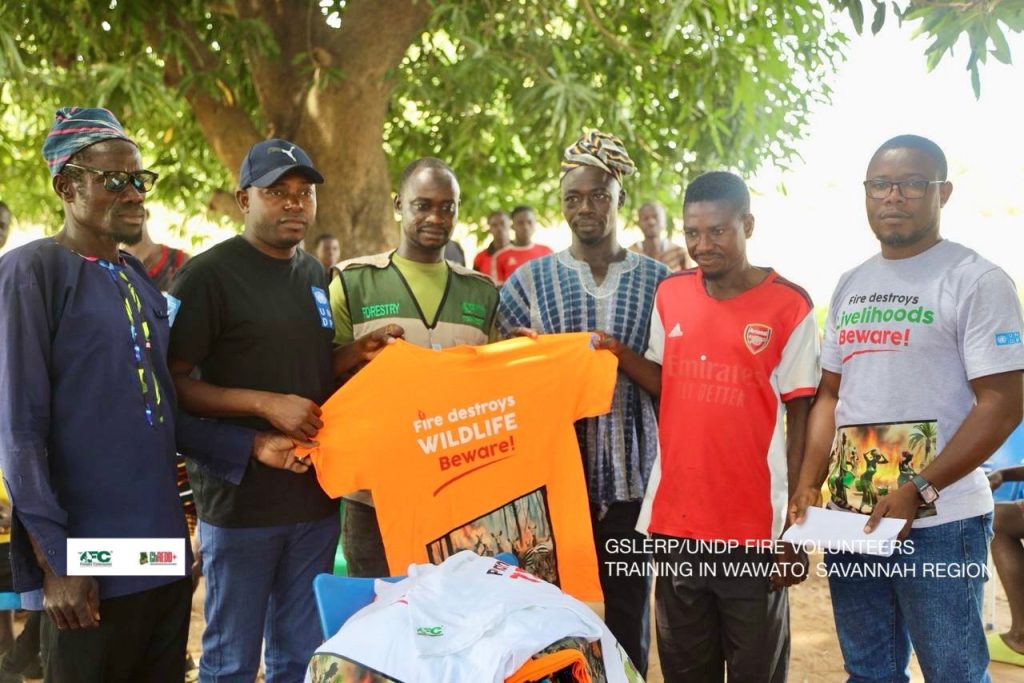
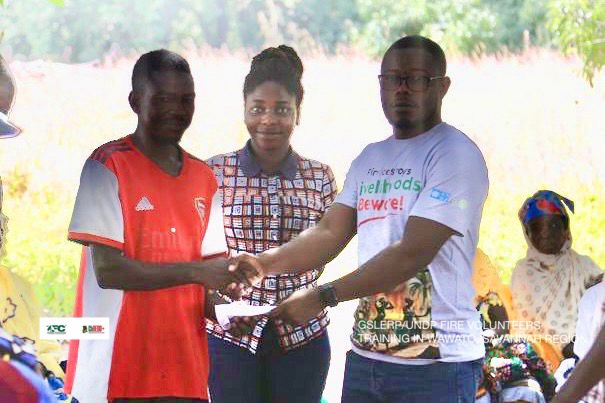
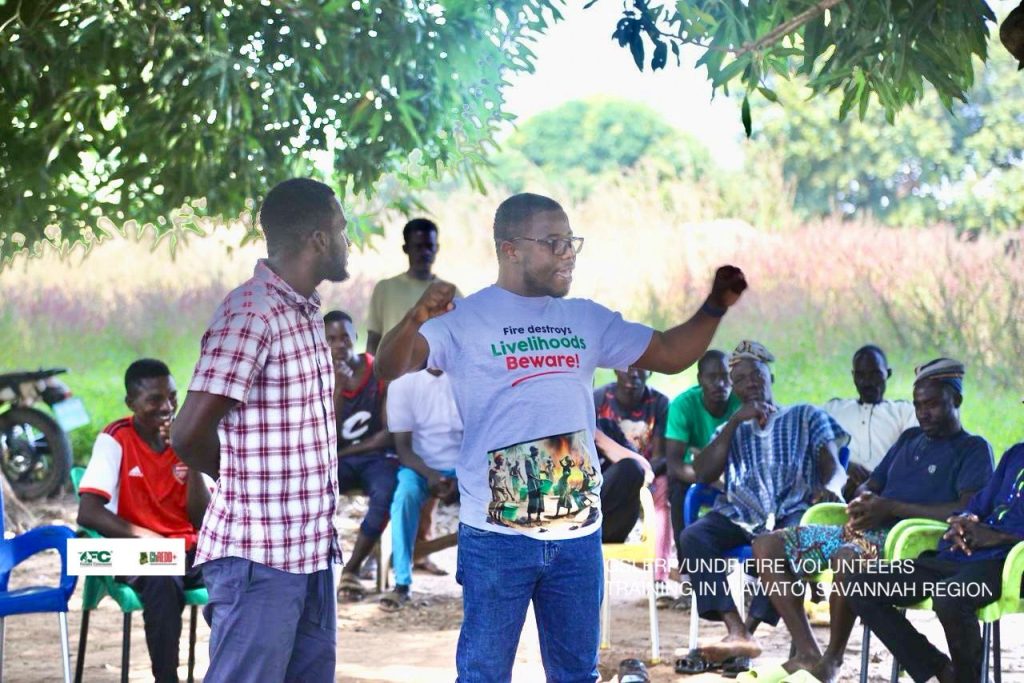
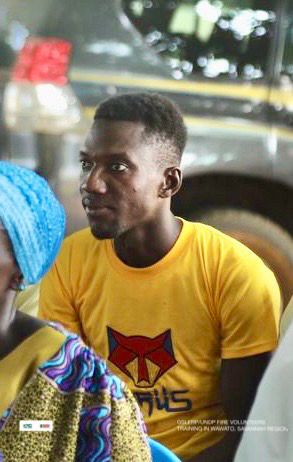
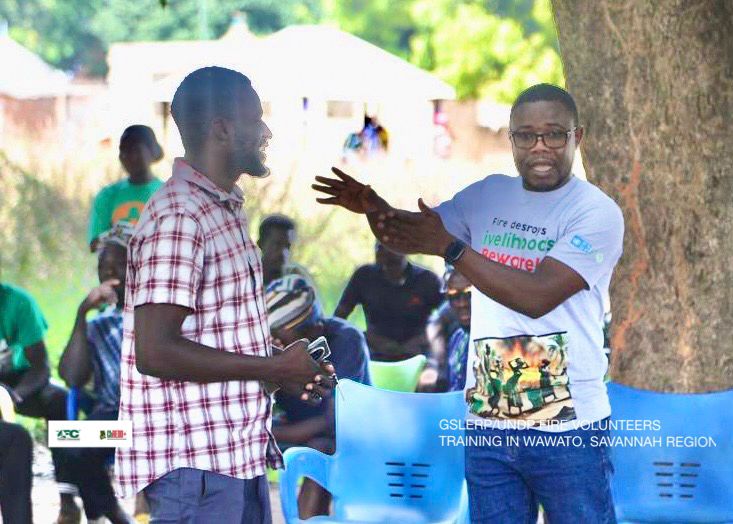
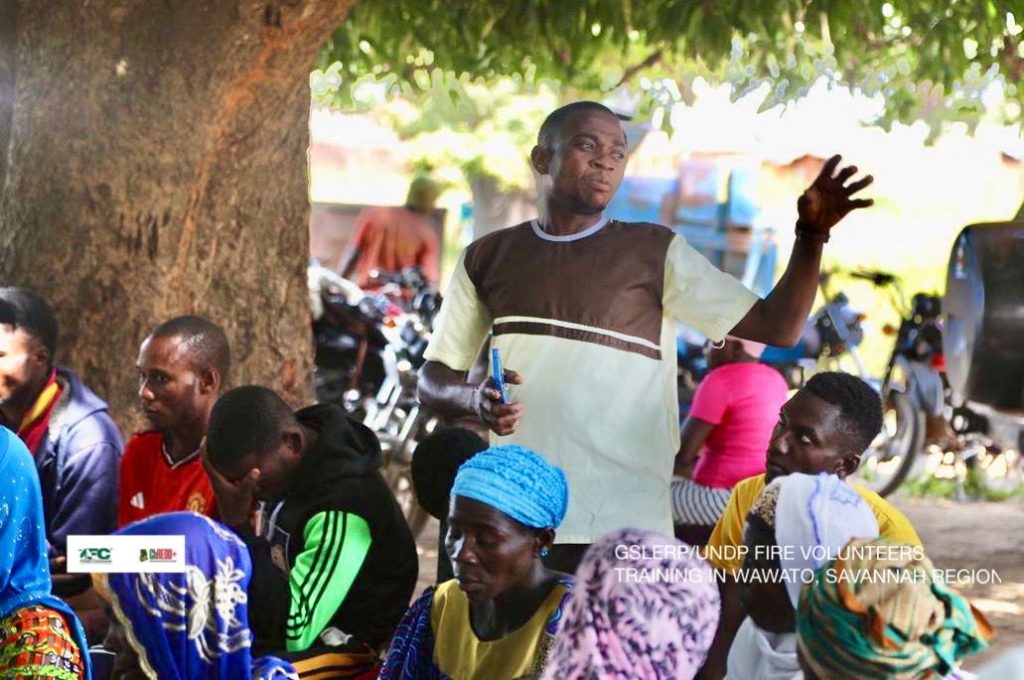
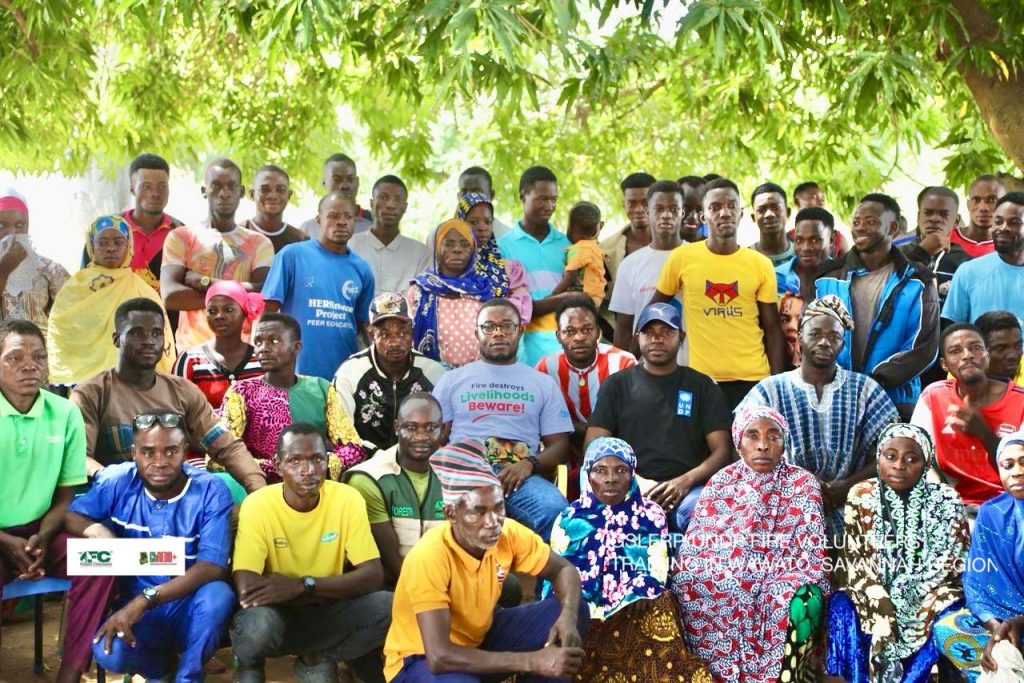
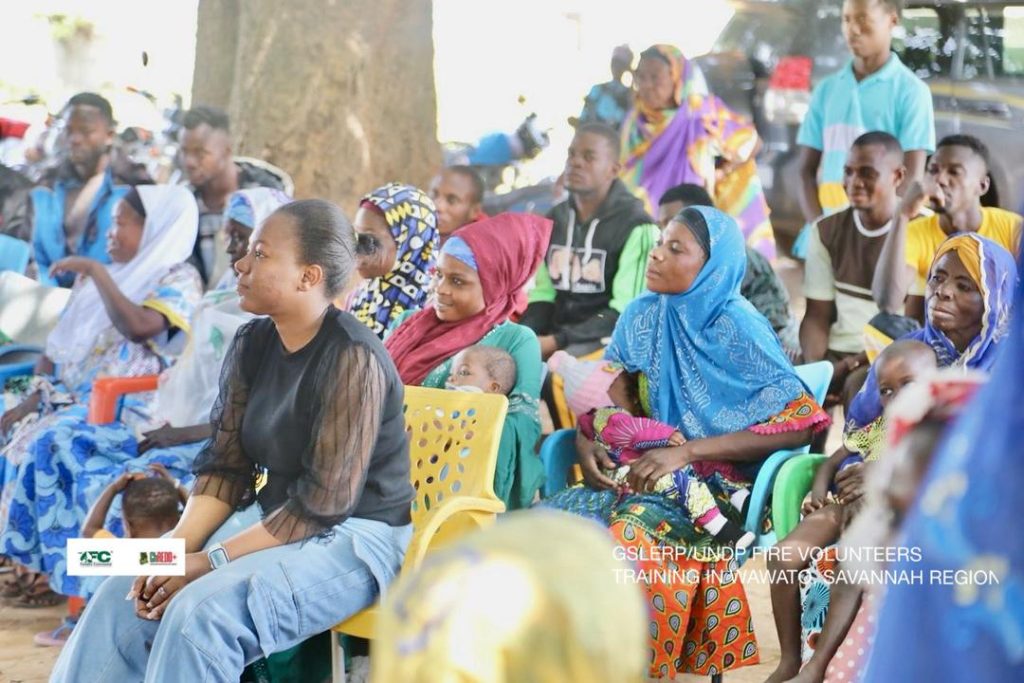
GSLERP AND UNDP TRAIN 812 FIRE VOLUNTEERS
The Ghana Shea Landscape Emission Reductions Project (GSLERP), hosted by the Climate Change Department of the Forestry Commission in collaboration with the United Nations Development Programme (UNDP), has trained about 812 fire volunteers in the North East, Upper West and Savannah Regions. The volunteers were drawn from 10 Community Resource Management Areas (CREMAs), made up of 75 communities.
Addressing the gathering, Mr Emmanuel Baapeng, GSLERP Tamale Project Manager, expressed deep appreciation to volunteers for their proactive role in bushfire management and community protection. He mentioned fire prevention is an important aspect of GSLERP, and that was why all the volunteers have been brought together to be trained and hone their skills in bushfire prevention and fighting. He informed them that the training would be in two sessions; the first part is a detailed training on wildfire management, whilst the second part would be the selection of volunteers to be trained as resource persons to educate the public on wildfire management on the various radio platforms in their communities.” I will look out for articulate volunteers, who understand the issues and can communicate very well in their local dialects to be selected for the radio programs”, he said.
He urged the volunteers to listen attentively to the resource person and make contributions to the discussion to make it highly interactive as that would ensure that they had followed the discussions and understood it well.
Mr. Felix Fordjuor, Forest Range Manager of the Resource Management Support Centre, Kumasi, was the resource person for the event. He commenced the session by asking volunteers to mention the causes and effects of bushfires peculiar to their communities and emphasised the need for fire volunteers to regularly renew their knowledge on bushfire management.
He talked about the three types of bushfires and the methods to be used in dousing each of them. He also expatiated on the “Fire Triangle”, and talked about how each element in this triangle contributes to bushfires, and suggested methods to disable each of them in the triangle to douse bushfires.
Mr. Fordjuor took participants through the three stages of managing bushfires namely prevention, pre-suppression and tactical fire fighting or fire suppression. He reminded them of the various implements needed in fighting each stage of the bushfire and cautioned them not to fight bushfires individually as that could lead to loss of lives and properties.” There should be no loss of lives in the course of fighting bushfires,” he said.
A participant mentioned that some people set bushfires in other people’s farms for fun or as a means of settling scores with the person. Mr. Fordjuor informed them that such an action amounted to a crime which is punishable by law. “The laws of the country will deal with anyone who is caught deliberately setting fire to another person’s farms. It could lead to a fine, imprisonment or both, so desist from such acts,” he cautioned them.
The Corporate Affairs & Media Relations Manager, Mrs Joyce Ofori Kwafo, on behalf of the Chief Executive of the Forestry Commission Mr. John Allotey, and the Director of Climate Change, Ms. Roselyn Fosuah Adjei, thanked the participants for being a part of the Forestry Commission family and for the great role they play in the protection of the nation’s forests. She admonished the participants especially the women, to be ambassadors for anti-bushfires by sharing what they have learnt at the training session with their friends and families wherever they find themselves, be it the mosques, marketplaces, churches, homes and family gatherings.” Women are natural tale-bearers and this puts them in a better position to talk to their children, friends, families and loved ones about the dangers of bushfires and how to prevent them“, she said.
As part of the means to measure the work that the volunteers do in their communities, Mrs. Kwafo admonished them to always send reports with photos and videos where possible, to the Chairpersons of the various CREMAs for onward submission to the Project Manager. This would ensure that proper records of all bushfire management activities that the volunteers have undertaken are well documented and would feed into future training sessions.
Some of the volunteers were selected from each CREMA to be trained as resource persons for anti-bushfire education for radio programmes in their various communities.
On behalf of the Director of Climate Change, Ms. Roselyn Fosuah Adjei, T-shirts, posters, money and refreshment items were presented to the participants.
Mr Mankwa Mahamudu, the Chairman of the Mamprugu Wuntanluri Kuwomsasi (MWK) CREMA, expressed appreciation on behalf of the volunteers, to GSLERP and Forestry Commission as a whole, and promised that they will continue to protect the forest and wildlife resources against bushfires as their lives depend on those resources. He assured that whenever the volunteers are needed for training, they would avail themselves.
CREMA COMMUNITIES
| NO. | CREMA | COMMUNITIES |
| 1 | MAMPRUGU WUNTANLURI KUWOMSASI (MWK) | Tantala, Tandow, Wuntubi, Tuvuu,Yikpabong, Mugu, Dabozesi, Yizesi, Yizebisi, Zukpeni |
| 2 | KASENA-NIMORO | Banuosan, Tanla, Tanvielli, Nitalu, Kasana, Kassanpuori, Kunsola. Katinie |
| 3 | CHAKALI – SUNGMAALU | Jeyin, Gurumbelle, Yayoube, Holomuni, Ducie, Tuasa, Gbantala, Chaggu, Bisikom, Kulpong Kandasi |
| 4 | KARA-GANDAWIW | Kunkorgu, Pulima, Sibelle, Liplime, Jutong, Gbal, Kunkoku, Jawia,Sobellabi, Gwollu, Kunni, Bullu |
| 5. | ZUKPIRI | Siiru, Meguo, Mantari, Puni, Namou, Gelmwama, Zukpiri, Guduori, Kpaala, Kulipiene, Nanvilli, Takpo, Neyir, Nabuba, Saa, Charipon, Koorie. |
| 6. | YAZORI- KUMBO | Yazori |
| 7. | BAWENA -KPULUMBU | Bawena, Jifrono, Kpulumbu |
| 8. | GURUBAGO – WAWATO | Donkompe, Wawato, Gurubago |
| 9. | MURUGU-MOGNORI | Murugu, Mognori |
| 10. | KAPITE – NABOOSE | Grupe, Seyiri, Nasoyiri, Gentlipe, Sogoyiri, Soditey, Nyange, Buge |

